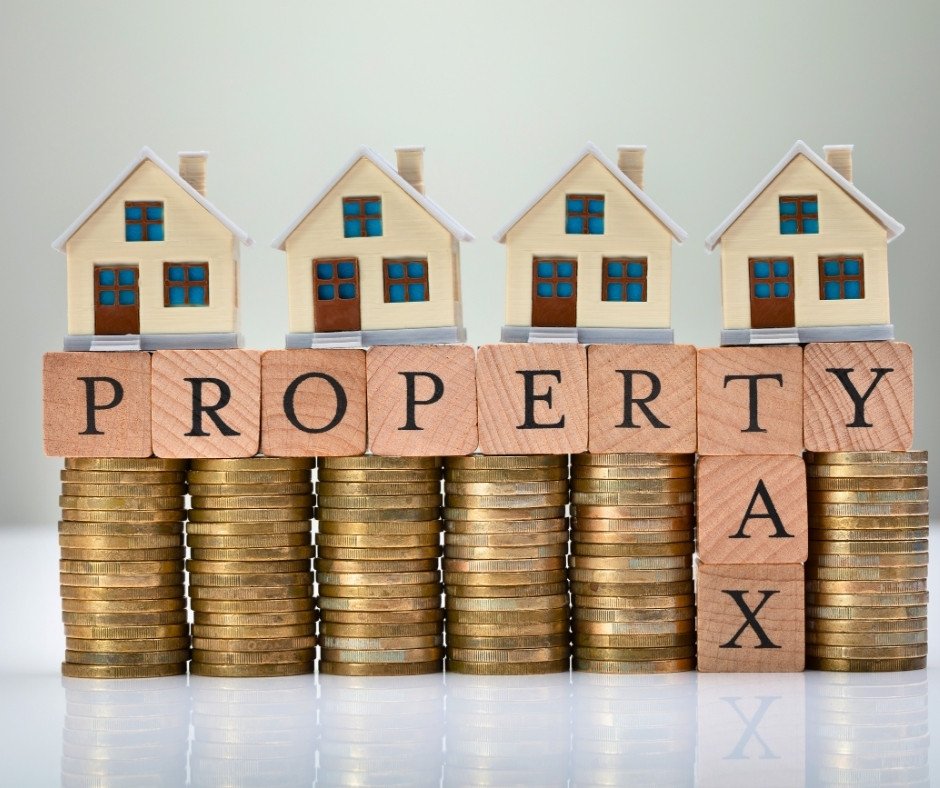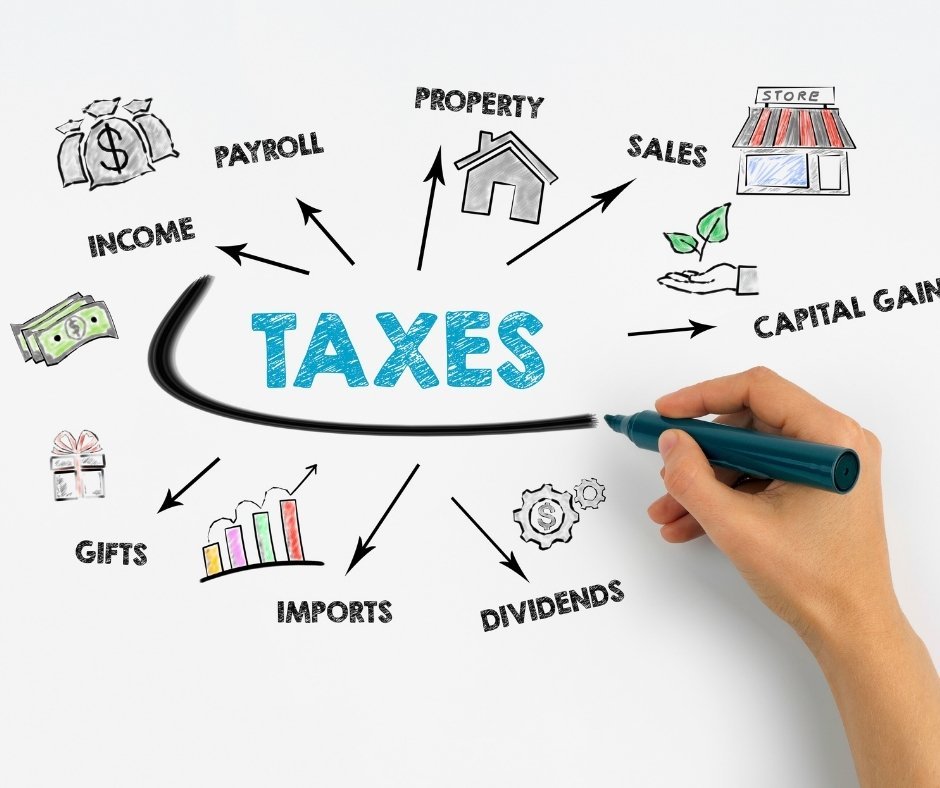
Property taxes are an essential source of revenue for local governments, funding vital services such as schools, infrastructure, and public safety. However, many homeowners are unaware that they might be overpaying on their property taxes by thousands of dollars each year. This hidden cost can add up to $8,000 or more annually, a significant burden for many families.
The good news is that homeowners have the legal right to challenge their property tax assessments and potentially save a substantial amount of money. In this article, we will uncover the secrets behind property tax over-assessments and provide practical steps for homeowners to fight back legally and effectively.
Understanding Property Taxes
Property taxes are levied on real estate and personal property by local governments. These taxes are typically based on the assessed value of the property, which is determined by local tax assessors. The assessment process involves evaluating the property’s market value, considering factors such as location, size, improvements, and comparable sales in the area.
The calculation of property taxes is straightforward: the assessed value of the property is multiplied by the local tax rate. For example, if your home is assessed at $300,000 and the local tax rate is 1.5%, your annual property tax bill would be $4,500. However, this simple formula can hide significant inaccuracies that lead to over-assessments and higher tax bills.

Understanding the nuances of property tax assessments is crucial for homeowners. Many are unaware that the assessed value may not always reflect the true market value of their property. This discrepancy can result in homeowners paying more in taxes than they should. By delving deeper into the assessment process and knowing their rights, homeowners can take steps to ensure they are not overpaying.
The $8,000+ Property Tax Secret
One of the most significant secrets in the world of property taxes is the prevalence of over-assessments. Local tax assessors, despite their best efforts, can make errors in the valuation process. These errors can be due to outdated information, incorrect assumptions about property improvements, or simply a lack of up-to-date market data.
For instance, if your home was assessed based on outdated sales data from a booming market, the assessed value might be significantly higher than the current market value. This discrepancy can lead to overpayments of thousands of dollars each year. In some cases, homeowners have found that their property taxes were over-assessed by as much as $8,000 or more annually.

The key to uncovering these over-assessments lies in understanding how property values are determined and how to challenge inaccurate assessments. Homeowners who take the time to investigate their property’s assessed value and compare it to current market conditions can often find significant discrepancies that warrant a tax appeal.
Why Homeowners Overpay
Many homeowners overpay on their property taxes simply because they are unaware of the assessment process and their rights. The complexity of property tax laws and the seemingly authoritative nature of tax assessments can deter homeowners from questioning the accuracy of their tax bills. Additionally, the role of local tax assessors is often misunderstood, leading to a false sense of security that the assessed value is accurate.
Local tax assessors are responsible for evaluating properties and setting their assessed values. However, they are not infallible. Market fluctuations, changes in neighborhood conditions, and improvements or declines in property conditions can all impact the true market value of a home. If these factors are not accurately reflected in the assessment, homeowners can end up paying more in taxes than they should.

Moreover, many homeowners do not realize that they have the legal right to challenge their property tax assessments. The appeal process, while sometimes daunting, is designed to ensure that property taxes are fair and accurate. By understanding this process and taking proactive steps, homeowners can protect themselves from over-assessments and potentially save thousands of dollars each year.
The Legal Framework for Property Taxes
Property tax laws and regulations vary by jurisdiction but generally aim to ensure that property taxes are fair and equitable. Homeowners have specific rights and responsibilities under these laws, including the right to appeal their property tax assessments.
Understanding the legal framework is essential for homeowners who wish to challenge their assessments. Property tax laws typically outline the assessment process, the criteria for determining property values, and the procedures for filing appeals. Homeowners should familiarize themselves with these laws to ensure they are following the correct steps and meeting all necessary requirements.

In addition to state and local laws, there are often federal regulations that impact property taxes. For example, certain exemptions and deductions may be available to homeowners, which can further reduce their tax liability. By staying informed about both local and federal tax laws, homeowners can maximize their savings and ensure they are paying only what they legally owe.
How to Fight Back Legally
Challenging a property tax assessment may seem intimidating, but it is a legal right that homeowners should not hesitate to exercise. The first step in fighting back is to obtain a copy of the property tax assessment and carefully review it for accuracy. Homeowners should verify that all information about their property, such as square footage, improvements, and condition, is correct.
If discrepancies are found, the next step is to gather evidence to support a challenge. This can include recent comparable sales in the area, professional appraisals, and documentation of any property improvements or declines. Homeowners may also consider hiring a professional tax assessor or attorney to help them navigate the appeal process.

Filing a property tax appeal typically involves submitting a formal request to the local tax assessor’s office or a tax appeals board. This request should include all relevant evidence and a clear explanation of why the homeowner believes the assessment is inaccurate. It is crucial to meet all deadlines and follow the required procedures to ensure the appeal is considered.
Gathering Evidence
To build a strong case for a property tax appeal, homeowners need to gather compelling evidence that demonstrates the assessed value of their property is too high. One of the most effective ways to do this is by researching comparable property sales in the area. These comparables, or “comps,” provide a benchmark for determining the fair market value of a home.
Homeowners can find comps through online real estate platforms, local tax records, and by consulting with real estate agents or professional appraisers. It is important to select comps that are as similar as possible to the homeowner’s property in terms of size, location, age, and condition. By comparing these properties, homeowners can establish a more accurate market value for their home.
In addition to comps, homeowners should document any property improvements or declines that may affect the value of their home. For example, if a homeowner has made significant renovations, this could increase the property’s value. Conversely, if the property has suffered damage or is in need of repairs, this could decrease its value. Providing detailed documentation of these conditions can strengthen the homeowner’s case.
Online resources and local records can also be invaluable tools for gathering evidence. Many counties and municipalities maintain online databases of property assessments and sales data. Homeowners can use these resources to find accurate and up-to-date information about comparable properties in their area. Additionally, local tax offices often have records of previous assessments and appeals that can provide useful insights into the valuation process.
The Appeal Process
Once the evidence has been gathered, the next step is to file a property tax appeal. This process typically involves submitting a formal request to the local tax assessor’s office or a tax appeals board. The request should include all relevant evidence and a clear explanation of why the homeowner believes the assessment is inaccurate.
It is crucial to meet all deadlines and follow the required procedures when filing an appeal. Deadlines for appeals vary by jurisdiction but are usually within a specific timeframe after the assessment notice is issued. Homeowners should carefully review the appeal requirements and ensure they have all necessary documentation before submitting their request.

The appeal process can vary in complexity and duration. In some cases, the tax assessor’s office may review the appeal and make a decision without a formal hearing. In other cases, a hearing may be scheduled where the homeowner can present their evidence and arguments. During the hearing, the homeowner or their representative will have the opportunity to explain why the assessed value is too high and provide supporting documentation.
Understanding what to expect during the appeal process can help homeowners prepare and increase their chances of success. Homeowners should be prepared to present their case clearly and concisely, focusing on the evidence that supports a lower assessment. They should also be prepared to answer questions from the tax assessor or appeals board members.
Strategies for Long-Term Savings
Challenging a property tax assessment is not a one-time event but rather part of a long-term strategy for managing property taxes. Homeowners should regularly monitor their property tax assessments to ensure they remain accurate and fair. This can involve keeping an eye on market conditions, property improvements, and any changes in local tax laws.
Utilizing exemptions and deductions is another effective way for homeowners to reduce their property tax bills. Many jurisdictions offer exemptions for certain types of property owners, such as seniors, veterans, or disabled individuals. Homeowners should research and apply for any applicable exemptions to maximize their savings.

Engaging in community efforts to reform property tax laws can also have a significant impact. Homeowners can join local advocacy groups or participate in public forums to voice their concerns and push for fair and equitable tax policies. By working together, homeowners can create a more transparent and just property tax system.
Conclusion
Property tax over-assessments are a hidden cost that many homeowners face, often without realizing it. By understanding the assessment process, gathering evidence, and following the legal procedures for appealing assessments, homeowners can potentially save thousands of dollars each year. The key to success lies in being informed, proactive, and persistent in advocating for fair and accurate property tax assessments.
We encourage all homeowners to take the time to review their property tax assessments and consider whether they are paying more than they should. By exercising their legal rights and taking advantage of available resources, homeowners can protect their financial interests and ensure they are treated fairly by the property tax system.







